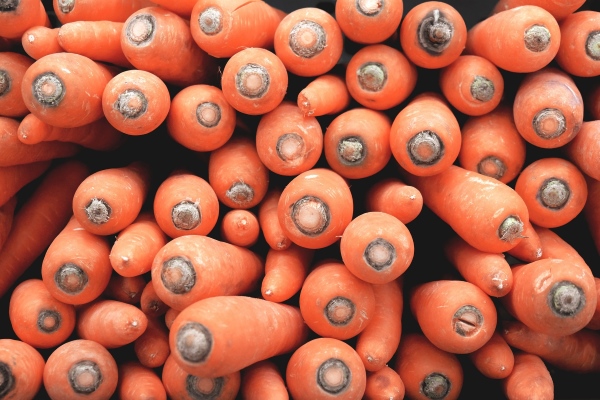
European researchers have been able to successfully determine the origin of organic carrots via metabolomic fingerprinting, paving the way for an approach to authenticate organic food in the future and fight food fraud.
Carried out by the European Commission's Joint Research Council (JRC), the study sought to investigate whether agronomic production techniques – such as soil quality, water and fertiliser management – affected the metabolite composition of carrots and whether this could be used to build models to predict the origin of the vegetable.
The researchers found they could correctly classify 100 per cent of unknown samples according to agricultural practices when using yearly harvested samples over four years.
"The results obtained indicate that metabolomics using a multivariate analysis approach is a promising tool to discriminate between agricultural systems… The results obtained indicate that the production system has a systematic influence on the carrot's metabolome," the researchers wrote in the journal Food Chemistry. "To the best of our knowledge, this is the first time that a metabolomics approach is used for organic food authentication purposes in a long-term (four years) field study and by using external validation sample sets to predict the origin of unknown samples."
Organic products have increased in popularity in recent years, while their premium price tags make them an attractive target for food fraudsters labelling conventional products as organic.
The EU has targeted increased traceability in the organic sector, along with other food products, with the introduction earlier this year of greater controls to crackdown on food fraud.
However, the researchers wrote that "due to the lack of sound analytical methodology to distinguish organically and conventionally grown crops and in response to EU legislation (Regulation (EC) No 834/2007), analytical methods that can distinguish between both agricultural systems are needed".
The basis of the research was grounded in the fact that organic products experience different growing conditions compared with conventional products, such as organic manures and biological pest control, which the researchers believed "may increase environmental stress in plants" and result in the accumulation of differing levels of metabolites, which could be measured via metabolomic analysis for authentication purposes.
The researchers performed a comprehensive biochemical analysis based on untargeted liquid chromatography–mass spectrometry (LC–MS) metabolomics of Nerac and Namur carrot varieties coming from different agronomic environments in Belgium.
Although the identification and quantification of the metabolites responsible for the classification were not the aim of this study, the researchers found that markers related to carbohydrate metabolism and plant defence mechanisms were identified as being the metabolites mainly involved in the differences between conventional and organic agricultural systems.
"We found a systematic and consistent influence of the production system on the crop's metabolome in two varieties of carrots collected from farmers using different phytochemical and fertilization approaches and in different locations of Belgium over a period of four years. This highlights the potential of using metabolomics for authentication of agricultural origin of organic products," the researchers said.
As analytical approaches such as mass spectrometry (MS) and chemometrics have developed over the past decade, the application of metabolomics to food authentication issues has gained increasing interest, although such methods have not yet been taken up by the regulatory agencies for use in food authentication issues, the researchers said.
"The main advantage of the use of metabolomics in food authentication is its untargeted nature. Unexpected changes in the metabolite profile, i.e. by the addition of new adulterants, may be detected without the need of an a priori hypothesis which offers a great advantage ahead of the fraud performers.
"The application of fingerprinting for food authentication issues is still at an early stage and more studies with larger datasets are required to draw valid conclusions. Indeed, although some of these procedures have shown to be promising, more studies are needed that account for pedo-climatic factors, agricultural productions systems, genetics, processing, etc., to obtain models with wide applicability," the researchers concluded.
The study can be found here: http://www.sciencedirect.com/science/article/pii/S0308814617311433
©
SecuringIndustry.com
 | back to top
| back to top





